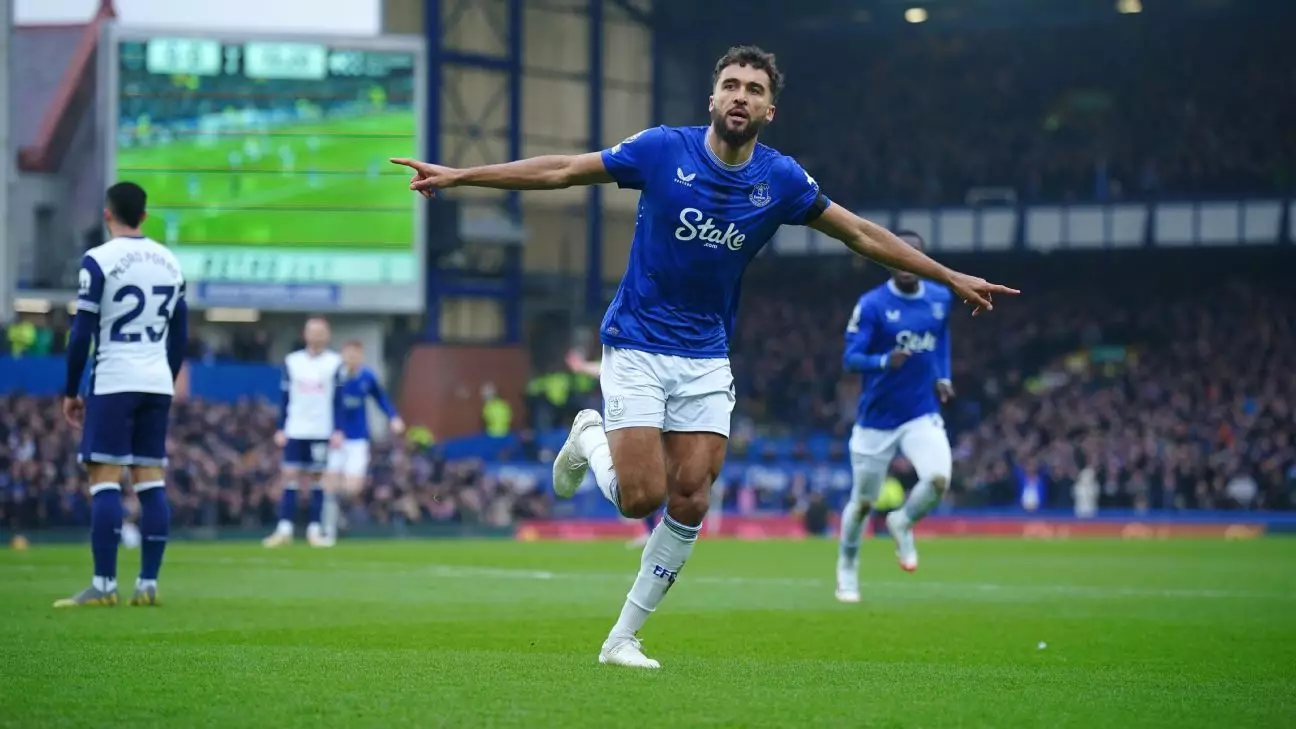In contemporary football, the free transfer window has evolved into a powerful strategic tool that clubs leverage to acquire talent without the hefty financial burden of transfer fees. Manchester United’s interest in Dominic Calvert-Lewin exemplifies this trend. After nine dedicated years at Everton, Calvert-Lewin’s departure signals a shift in club strategies—where earnings from lucrative transfers are sometimes sacrificed in favor of acquiring fresh talent via free agency. This approach allows clubs like Manchester United to allocate resources more effectively, investing in multiple areas rather than a single marquee signing. However, the reliance on free transfers is a gamble; it demands excellent scouting and negotiation finesse. If executed well, it can bolster a squad’s depth without destabilizing the wage structure. Yet, the danger lies in rushed signings of players whose best years might be behind them or plagued with injuries, as is often the case with Calvert-Lewin. This strategy underscores a preference for agility and adaptability—using contractual freedom to build or rebuild while maintaining financial flexibility.
The Power of Player Agency: Strikes, Leaks, and Market Force
The saga surrounding Viktor Gyökeres’ potential move from Sporting CP highlights an emergent trend: players now wield significant influence over their destinies. Gyökeres’ threat to go on strike demonstrates a bold assertion of agency, transforming the traditional transfer negotiation from a purely club-centric process into a battlefield of personal ambition. This tactic can accelerate negotiations, pressuring clubs into more favorable deals, especially when a player’s desire to join a specific club outstrips monetary considerations. It hints at a new football ecosystem where players view themselves as brands and leverage their current circumstances for maximum leverage. Such actions, however, can create friction within clubs, risking reputational damage. Yet, for ambitious players like Gyökeres, this approach may be their best shot at realizing their “dream” moves, especially in a highly competitive market packed with alternatives. Clubs must now balance traditional transfer negotiations with these player-led power plays, shaping a landscape where talent and willpower forge new pathways to success.
Shifts in Transfer Strategies and Market Dynamics
The recent activities across European clubs demonstrate an evolving market where strategic acquisitions and deal-making are more nuanced than ever. West Ham’s rejection of Tottenham’s £50 million bid for Mohammed Kudus illustrates the delicate balancing act clubs perform—valuing their assets while managing financial expectations amidst mounting competition. Meanwhile, Arsenal’s aggressive pursuit of Gyökeres and the signing of Martín Zubimendi for €60 million underscores a shift towards acquiring key figures to strengthen the core of their team, but at potentially high costs. The departure of Mikey Johnston to Flamengo and Jens Cajuste’s loan switch to Beşiktaş exemplify how clubs are now opting for tactical disposals and loans as part of a broader ecosystem to optimize squad balance and financial health. These maneuvers also reflect a willingness to embrace risk—paying conditional fees and making strategic player swaps—revealing a deep understanding that football’s transfer market is less about the size of fees and more about long-term planning and resource management.
In a sport where finances and talent are in perpetual flux, adaptability has become the defining trait of successful clubs. Leveraging free transfers, exploiting player agency, and executing thoughtful market transactions are all part of a larger narrative: football’s evolution into an intricate chess game of strategy, influence, and agility. As clubs become more creative with their acquisition tactics, the power lies increasingly in the hands of players and savvy managers. The days of static, purely financial deals are fading—replaced by dynamic negotiations that are often driven by individual ambition and strategic vision. The future of football transfers is a testament to the game’s fluidity, where the ability to adapt quickly, negotiate shrewdly, and understand market forces will define winners both on and off the pitch.

